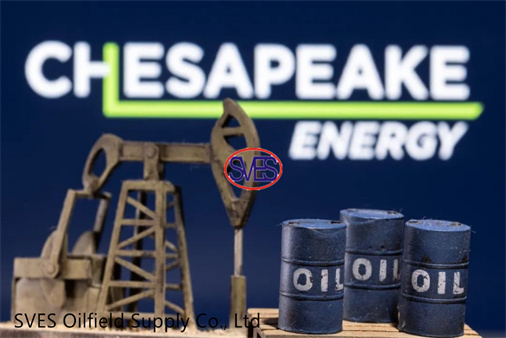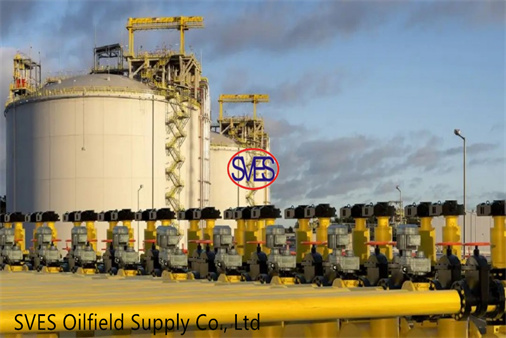
SVES Oilfield Supply Co., Ltd will persist in the oil and gas industry despite significant challenges.
2024-05-29 10:00Oil and GasSVES Oilfield Supply Co., Ltd will persist in the oil and gas industry despite significant challenges.
Chesapeake Energy, the largest U.S. natural gas producer, announced on Monday that it would begin laying off Oil and Gas80 employees this week, all from its recently divested Eagle Ford shale assets, according to Reuters.

Amid high international oil prices and general profitability among oil companies, many well-known oil and gas firms have announced layoffs. What’s driving these decisions? Many of these companies are navigating asset mergers and acquisitions. Understanding the signals behind these layoffs sheds light on the difficult choices oil giants are making during this long period of energy transformation.
Multiple Oil Giants Announce Layoffs
Chesapeake, headquartered in Oklahoma, divested its Eagle Ford Shale assets in southern Texas in 2022-2023, becoming a "pure-play" natural gas producer. However, a 20% drop in natural gas prices in the first quarter due to high inventories and lower-than-expected demand led to Chesapeake Energy missing Wall Street's profit expectations and scaling back production, a move widely seen as the direct cause of its layoffs.
In Australia, Santos, a $25 billion ASX-listed oil and gas producer, announced it will cut 200 jobs, primarily from its Perth office. The company's portfolio includes fields in South Australia's Cooper Basin, Western Australia, the Northern Territory, and Papua New Guinea. Santos reported sales revenue of $2.1 billion and 21.8 million barrels of oil equivalent in its first-quarter results. CEO Kevin Gallagher emphasized the need to optimize the workforce to ensure safety, efficiency, and effective delivery of business plans.

ExxonMobil, one of the five major oil giants, laid off 111 employees at its Denbury subsidiary in March this year. ExxonMobil's recent $4.9 billion acquisition of Denbury, an independent energy company specializing in carbon capture, utilization, and storage (CCS) solutions, provides it with access to Denbury's extensive carbon dioxide pipeline network and significant oil and gas operations.
Shell, another major oil company, has laid off 15% of its low-carbon solutions division globally since last October, affecting 200 positions, primarily in the hydrogen energy travel business line. According to Oilprice, Shell has expanded layoffs to other teams this year, including a 20% reduction in its mergers and acquisitions transaction team.
Layoffs Driven by Mergers and Acquisitions
Media reports suggest that this year’s layoffs among oil giants are primarily linked to declining profits. In the first quarter of 2024, the combined net profit of the five major oil companies was approximately $29.2 billion, down $10 billion from the first quarter of the previous year.
However, another common factor among companies laying off employees is asset acquisitions and adjustments. Chesapeake Energy, for example, is finalizing its $7.4 billion merger with Southwestern Energy Co., a deal set to create the largest natural gas producer in the U.S. Chesapeake, a pioneer of the American shale gas revolution, emerged from bankruptcy in 2020 and has since focused its portfolio on natural gas.
Since the historic lows in oil prices in 2020, mergers and acquisitions have been prevalent in the oil and gas industry. Initially driven by a need to "team together for warmth" or even as "disguised bankruptcies," the focus has now shifted to "business structure adjustment and core resource focus."
ExxonMobil's acquisition of Pioneer Natural Resources for $64.5 billion last year, targeting unconventional oil and gas resources in the Permian Basin, exemplifies this shift. This merger increases ExxonMobil's reserves in the Permian Basin to 16 billion barrels of oil equivalent and more than doubles its annual production, promising substantial returns in an era of high oil prices. The acquisition of Denbury, with its focus on CCS and proven reserves of 200 million barrels of oil equivalent, further clarifies ExxonMobil’s core business focus.

Shell’s layoffs also reflect strategic business decisions. By selling a quarter of its U.S. solar business assets and focusing layoffs on the hydrogen travel business line, Shell is accelerating the reduction of renewable energy investments while maintaining its commitment to CCS and carbon sequestration, which align more closely with its oil and gas operations.
Strategic Layoffs and Core Business Focus
The layoffs by these oil giants highlight a strategic shift towards defining and focusing on core businesses. While the pursuit of low-carbon initiatives remains crucial, investing heavily in areas without short-term returns is unsustainable. Developing oil and gas with lower costs, more efficient technology, and environmentally friendly methods emerges as a viable and balanced strategy.
SVES Oilfield Supply Co., Ltd will continue to support and persist in the oil and gas industry, even in the face of significant challenges, embodying this strategic balance and long-term commitment.
